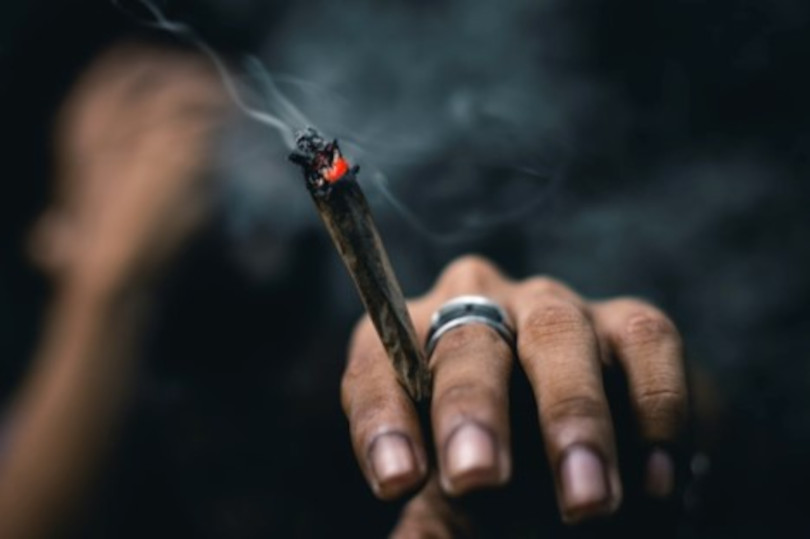Have you ever stopped to think about the incredible journey of cannabis? This plant has been around for centuries, used for medicinal and recreational purposes across the globe. However, it has also been the subject of controversy, and its legality has been questioned for just as long.
In recent years, a growing movement has emerged to legalize cannabis, and the results have been remarkable. Several countries and states have taken the bold step to legalize cannabis, recognizing its vast potential for medical treatment and economic growth.
Medical and Economic Benefits
The medical benefits of cannabis have been known for centuries. The plant has been used for pain relief, anti-inflammatory purposes, and as a treatment for nausea and vomiting. Today, cannabis is used to treat various medical conditions, including chronic pain, multiple sclerosis, epilepsy, and more. Studies have shown that cannabis can be an effective treatment for these conditions and that it can be safer and more effective than many traditional medications.
In addition to its medical benefits, cannabis can potentially drive economic growth. Legalizing cannabis creates new jobs, generates tax revenue, and reduces law enforcement costs. In the United States, the cannabis industry is rapidly growing, and legal sales of cannabis totaled $18.3 billion in 2020, generating $4.5 billion in tax revenue. As more states and countries legalize cannabis, this trend is expected to continue.
Of course, there are concerns about the potential health risks associated with cannabis use, especially among young people. Opponents of legalization argue that driving under the influence of cannabis can be dangerous and that legalization could increase traffic accidents. However, legalization supporters point out that proper regulation and education can mitigate these risks. For example, legalizing cannabis can allow for stricter laws against driving under the influence, and public education campaigns can help ensure that people are aware of the risks associated with cannabis use.
The Politics of Cannabis
The legalization of cannabis has been a hot topic in American politics in recent years, and it is expected to continue to be so in 2023. With the 2022 midterm elections over and the 2024 presidential election looming on the horizon, cannabis policy will likely remain a vital issue for politicians and voters alike.
Several states have already taken steps toward legalizing cannabis, with New York and Virginia passing laws to legalize recreational cannabis in 2021. In addition, many other states are considering similar measures, including Connecticut, Minnesota, and New Mexico. These state-level actions are part of a growing trend toward cannabis legalization across the country.
However, cannabis remains illegal at the federal level in the United States, creating a complex legal landscape for cannabis businesses and consumers. Federal law enforcement agencies have been known to crack down on cannabis businesses even in states where it is legal, and this has created uncertainty for those involved in the industry.
Administrative Arguments
In 2023, the Biden administration is expected to continue to grapple with the issue of cannabis legalization. During his presidential campaign, President Biden expressed support for decriminalizing cannabis and expunging prior cannabis-related convictions, but he stopped short of endorsing full legalization. It remains to be seen whether his administration will take further steps toward cannabis legalization or decriminalization.
Meanwhile, the Republican Party remains divided on the issue of cannabis legalization. Some conservative Republicans oppose legalization on moral grounds, while others support it as a states’ rights issue. We’ll likely see more debate and discussion within the Republican Party about cannabis policy in the coming year.
One of the key arguments in favor of cannabis legalization is that it could help reduce the number of incarcerated people for non-violent drug offenses. In the United States, drug offenses significantly contribute to the country’s high incarceration rate. According to the Prison Policy Initiative, more than half a million people are incarcerated in the United States for drug offenses, and most of these individuals are there for non-violent crimes.
Many advocates for cannabis legalization argue that legalizing and regulating cannabis could help to reduce the number of incarcerated people for non-violent drug offenses. By legalizing cannabis, individuals would no longer be criminalized for possessing or using the drug, and this could help to reduce the number of people who end up in jail or prison for cannabis-related offenses.
What Lies Ahead
In addition, legalizing cannabis could help to reduce racial disparities in the criminal justice system. Research has shown that Black and Latino individuals are disproportionately likely to be arrested and incarcerated for drug offenses, despite similar rates of drug use across racial groups. By legalizing cannabis, advocates argue, we can reduce the number of people criminalized for drug offenses, which could help reduce racial disparities in the criminal justice system.
As we move into 2023, it’s clear that cannabis policy will continue to be an important issue in American politics. Politicians, voters, and stakeholders alike must carefully consider the scientific evidence and weigh the potential benefits and drawbacks of cannabis legalization as we move forward. It’s also important to remember that cannabis legalization is just one part of a larger conversation about criminal justice reform. Whether you support or oppose cannabis legalization, staying informed and engaged on this issue is crucial to continue advocating for policies that align with your values and priorities. Doing so can help shape a better future for ourselves and our communities and build a more just and equitable society for all.
- National Conference of State Legislatures: This organization provides up-to-date information on state laws related to marijuana, as well as legislative analysis and news updates. Their website is https://www.ncsl.org/research/civil-and-criminal-justice/marijuana-overview.aspx.
- American Civil Liberties Union: This organization advocates for criminal justice reform and has published reports on the racial disparities in marijuana arrests and the need for expungement of prior convictions. Their website is: https://www.aclu.org/news/criminal-law-reform/a-tale-of-two-countries-racially-targeted-arrests-in-the-era-of-marijuana-reform.
- “The Economic Impacts of Marijuana Legalization” – Congressional Research Service: https://fas.org/sgp/crs/misc/R43034.pdf
- “It is time for a Cannabis Opportunity Agenda” – The Brookings Institution: https://www.brookings.edu/policy2020/bigideas/it-is-time-for-a-cannabis-opportunity-agenda/#:~:text=We%20argue%20that%202020%20is,equity%2C%20opportunity%2C%20and%20inclusion.


